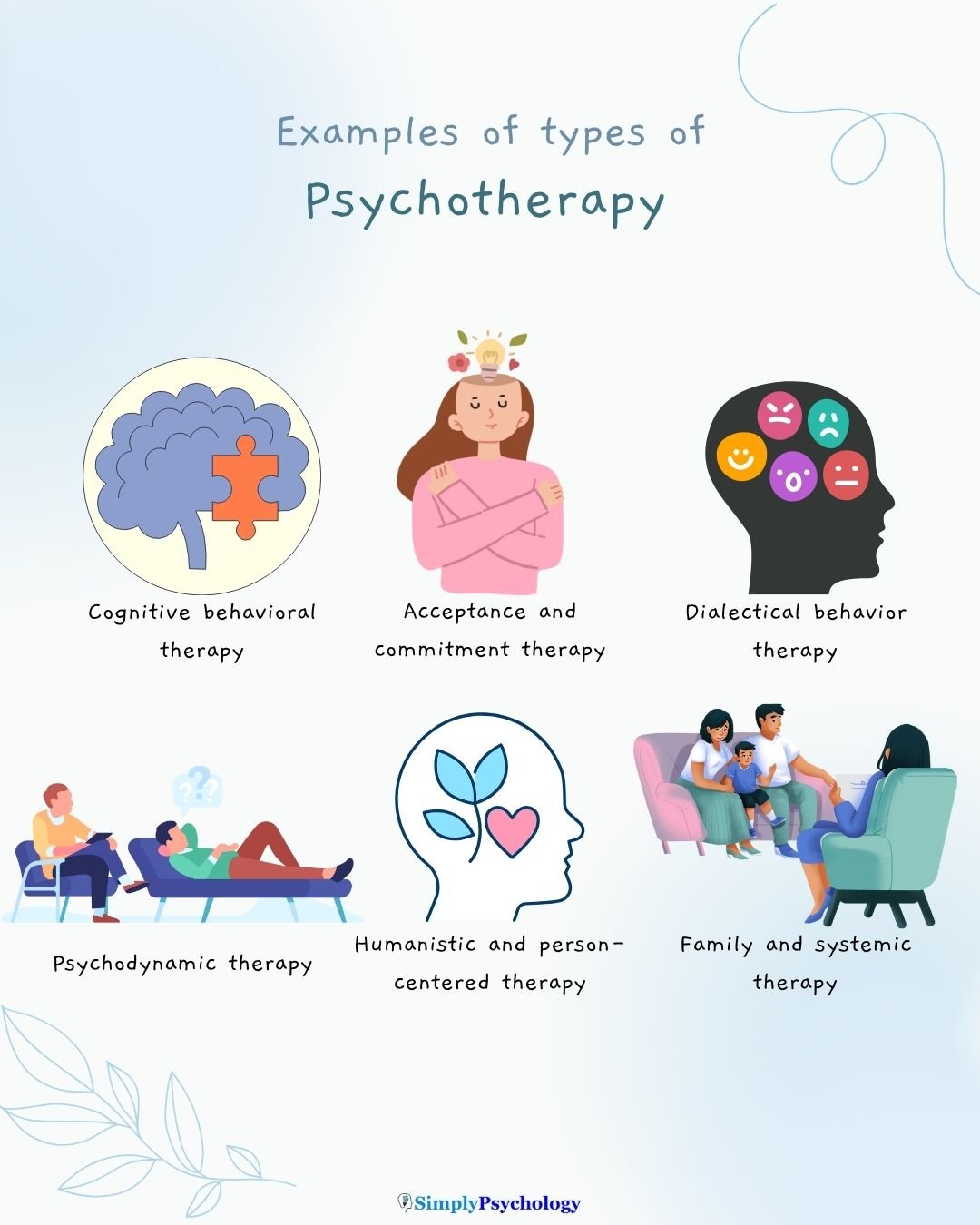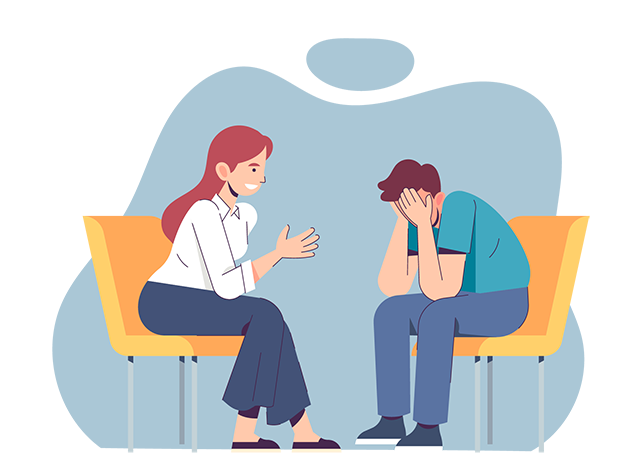Opening the Prospective of Psychotherapy Solutions for Stress Monitoring and Coping Strategies
Psychotherapy uses useful devices for taking care of tension and boosting coping methods. By using various healing methods, individuals can get insights right into their psychological actions and develop much healthier means to navigate life's stress. This procedure not only aids in determining stressors but additionally cultivates strength - saint paul psychotherapy. Comprehending how these solutions can be tailored to meet private needs is vital. The expedition of effective approaches reveals much deeper understandings right into personal development and wellness
Understanding Stress And Anxiety and Its Effect On Health
Anxiety, an universal element of modern-day life, considerably influences specific health. It manifests in different forms, from acute pressures, such as due dates, to persistent stressors like economic problems or relationship issues. This emotional and physical action can bring about significant wellness problems, consisting of stress and anxiety, clinical depression, and cardio illness. Individuals experiencing high tension degrees often discover it testing to keep healthy partnerships, concentrate on daily jobs, or engage in self-care. In addition, the body's tension reaction can disrupt sleep patterns and weaken the body immune system, additional exacerbating health and wellness problems. Understanding the complex nature of stress and anxiety is crucial for people seeking to boost their well-being, as identifying its influence can encourage them to embrace much healthier coping mechanisms and way of living changes.
The Role of Psychotherapy in Anxiety Monitoring
Psychotherapy serves as an important tool for people seeking to manage stress effectively. It offers an organized environment where clients can discover their feelings and ideas, allowing them to recognize stress factors and establish much healthier coping systems. Through restorative discussion, people get insight into their behavioral patterns and learn to reframe negative attitude. This procedure fosters emotional policy and strength, encouraging customers to challenge challenges with a well balanced perspective. In enhancement, Psychotherapy advertises self-awareness, helping individuals recognize their actions and triggers to stress and anxiety. By promoting a helpful restorative relationship, specialists can direct clients towards personal growth and enhanced well-being. st paul pyschotherapy. Ultimately, Psychotherapy outfits people with the abilities required to navigate stressors, enhancing their general quality of life
Usual Restorative Strategies for Handling Stress
Usual therapeutic approaches for handling anxiety include Cognitive Behavioral Therapy, mindfulness-based strategies, and Solution-Focused Brief Treatment. Each approach provides unique approaches for aiding people cope and comprehend with stressors. Checking out these approaches can provide important insights into efficient stress and anxiety management methods.
Cognitive Behavior Modification
Many people encountering stress have turned to Cognitive Behavioral Treatment (CBT) as an effective approach for handling their feelings and thoughts. CBT focuses on determining and challenging unfavorable thought patterns, making it possible for individuals to reframe their perceptions of stressors. By understanding the connection between sensations, behaviors, and thoughts, clients can develop healthier coping techniques. This restorative method usually involves structured sessions where customers function collaboratively with specialists to keep an eye on and set certain objectives development. Techniques such as cognitive restructuring and behavioral activation are used to promote resilience. Research indicates that CBT can bring about substantial reductions in stress-related signs and symptoms, making it a beneficial tool for those seeking to enhance their psychological wellness and browse life's obstacles a lot more efficiently.

Mindfulness-Based Methods
While various healing techniques exist for tension monitoring, mindfulness-based methods have gotten significant focus for their performance in fostering present-moment understanding and emotional guideline. These techniques, rooted in old meditation techniques, encourage people to concentrate on their thoughts, feelings, and physical feelings without judgment. By growing a non-reactive awareness, people can reduce stress and anxiety and stress levels, causing improved coping systems. Mindfulness techniques, such as meditation, deep breathing, and mindful activity, help clients create a higher sense of self-awareness and durability. Research study has revealed that regular interaction in mindfulness can improve psychological health and promote flexible stress feedbacks. Consequently, these strategies have ended up being integral parts of contemporary Psychotherapy, providing clients valuable tools for steering with life's difficulties.
Solution-Focused Quick Treatment
Building on the mindfulness techniques that promote self-awareness and psychological law, Solution-Focused Short Treatment (SFBT) provides an unique strategy to taking care of anxiety. SFBT emphasizes a strengths-based viewpoint, urging people to recognize and leverage their present sources and dealing approaches. Instead of house on troubles, this therapeutic model concentrates on services and future objectives, promoting a positive overview. Through short, ambitious sessions, customers are assisted to visualize their preferred outcomes and check out functional steps to accomplish them. This method is particularly reliable for individuals dealing with pop over here acute stress, as it fosters fast gains in durability and dealing abilities. By stressing activity and solutions, SFBT empowers clients to navigate anxiety with confidence and clearness.
Establishing Coping Methods With Treatment
In Psychotherapy, establishing effective coping techniques is important for tension administration. This process generally entails identifying stress causes, utilizing cognitive behavior strategies, and integrating mindfulness and relaxation techniques. By addressing these locations, people can enhance their durability and far better navigate demanding circumstances.
Recognizing Stress Activates
How can people successfully recognize their tension causes? Recognizing stress activates is an essential action in managing anxiety. People can start by keeping a stress and anxiety diary, documenting scenarios that provoke tension, in addition to associated emotions and physical reactions. This reflective practice permits patterns to emerge, disclosing specific triggers. Additionally, treatment can promote this identification process with led conversations where people explore their life experiences and emotional actions. Specialists commonly urge mindfulness techniques, helping clients to come to be more familiar with their prompt sensations and responses. By determining these triggers, people can get understanding right into their stress responses, preparing for establishing efficient coping methods customized to their special experiences.
Cognitive Behavioral Techniques
Recognizing tension triggers acts as a structure for developing effective coping techniques, and cognitive behavior techniques (CBT) play a remarkable duty in this process. CBT involves recognizing adverse idea patterns and changing them with even more useful ones, which can greatly minimize anxiety levels. By understanding just how thoughts influence emotions and actions, individuals can learn to challenge irrational beliefs and establish healthier responses to stress. Techniques such as cognitive restructuring, analytic, and exposure treatment allow customers to challenge stressors in a controlled setting. Furthermore, practicing self-monitoring aids clients acknowledge their progress and setbacks. Eventually, CBT encourages individuals to cultivate resilience and enhance their coping abilities, fostering a proactive method to handling tension successfully.
Mindfulness and Relaxation Approaches
While cognitive behavioral techniques focus on restructuring thought patterns, mindfulness and relaxation methods use complementary techniques for tension monitoring. These methods encourage people to cultivate present-moment understanding, lowering stress and anxiety and promoting emotional law. Mindfulness techniques, such as reflection and deep-breathing exercises, make it possible for clients to observe their ideas and sensations without judgment, fostering a feeling of tranquility. In addition, leisure approaches, including dynamic muscular tissue relaxation and assisted images, further assist in minimizing physical stress related to tension. Including these techniques into Psychotherapy can equip individuals to establish resilience and versatility in challenging circumstances. By integrating mindfulness and leisure into their coping toolkit, clients enhance their total health and enhance their ability to navigate stress successfully.
Structure Strength With Psychotherapy Techniques
Structure strength via Psychotherapy techniques equips people with the devices essential to browse life's difficulties properly. Numerous techniques, such as cognitive-behavioral therapy (CBT), promote a much deeper understanding of actions and ideas, encouraging individuals to reframe adverse reasoning patterns. Additionally, techniques like emotion policy and stress administration assistance clients develop coping strategies that improve psychological versatility. Psychotherapy also urges the growing of an encouraging social media, which serves as a buffer versus anxiety. By promoting self-awareness and promoting flexible skills, people find out to approach difficulty with confidence. Eventually, these Psychotherapy techniques not just help in getting over instant stress factors but also lay a structure for long-term resilience, making it possible for individuals to adjust to future difficulties with better simplicity and strength.
Discovering the Right Specialist for Your Requirements
Guiding the journey of resilience commonly involves looking for expert assistance, making the choice of the right specialist a considerable action. Individuals should consider their particular demands, including the kind of anxiety they encounter and favored healing techniques. Researching various best site specialists, analyzing their qualifications, and recognizing their specializeds can lead this decision. Personal compatibility is critical; a supportive and compassionate relationship commonly boosts restorative results. Additionally, logistics such as cost, availability, and location play an important role in choosing a therapist. Taking part in initial consultations can aid assess comfort degrees and healing designs. Inevitably, locating the right therapist is an essential component of effective tension administration and the advancement of coping approaches, leading the means for boosted mental health.
Regularly Asked Inquiries
The Length Of Time Does Psychotherapy Typically Require To Program Results for Tension Management?
Psychotherapy usually takes several weeks to a few months to show noticeable outcomes for anxiety monitoring. Private responses differ based upon elements such as the seriousness of stress, therapeutic approach, and the customer's involvement in the procedure.
Can Psychotherapy Be Reliable for Anxiety Connected to Details Life Events?

Are There Any Kind Of Side Effects of Psychotherapy for Stress Monitoring?
Psychotherapy for stress administration might cause temporary discomfort, such as emotional distress or heightened anxiety throughout sessions. Nonetheless, these negative effects are usually short-term and can be part of the healing procedure.

Just How Much Does Psychotherapy for Stress Management Normally Expense?
Psychotherapy for stress management generally costs between $100 to $250 per session, relying on the specialist's experience and place. Insurance policy may cover some expenses, possibly lowering out-of-pocket expenses for customers seeking these services.
Is Online Treatment as Effective as In-Person Psychotherapy for Stress And Anxiety?
Study shows that online therapy can be as effective as in-person Psychotherapy for stress and anxiety monitoring. Elements such as therapist connection, client engagement, and individual choices greatly influence the overall performance of both methods.
Psychotherapy offers as a necessary device for people seeking to manage stress effectively. therapy st paul. In enhancement, Psychotherapy advertises self-awareness, assisting people acknowledge their reactions and triggers to tension. Identifying stress causes is a crucial step in handling stress and anxiety. Individuals can start by keeping a stress and anxiety diary, recording circumstances that provoke anxiety, along with associated feelings and physical reactions. Psychotherapy can be effective for stress and anxiety associated to specific life occasions, as it offers people with coping strategies and emotional assistance